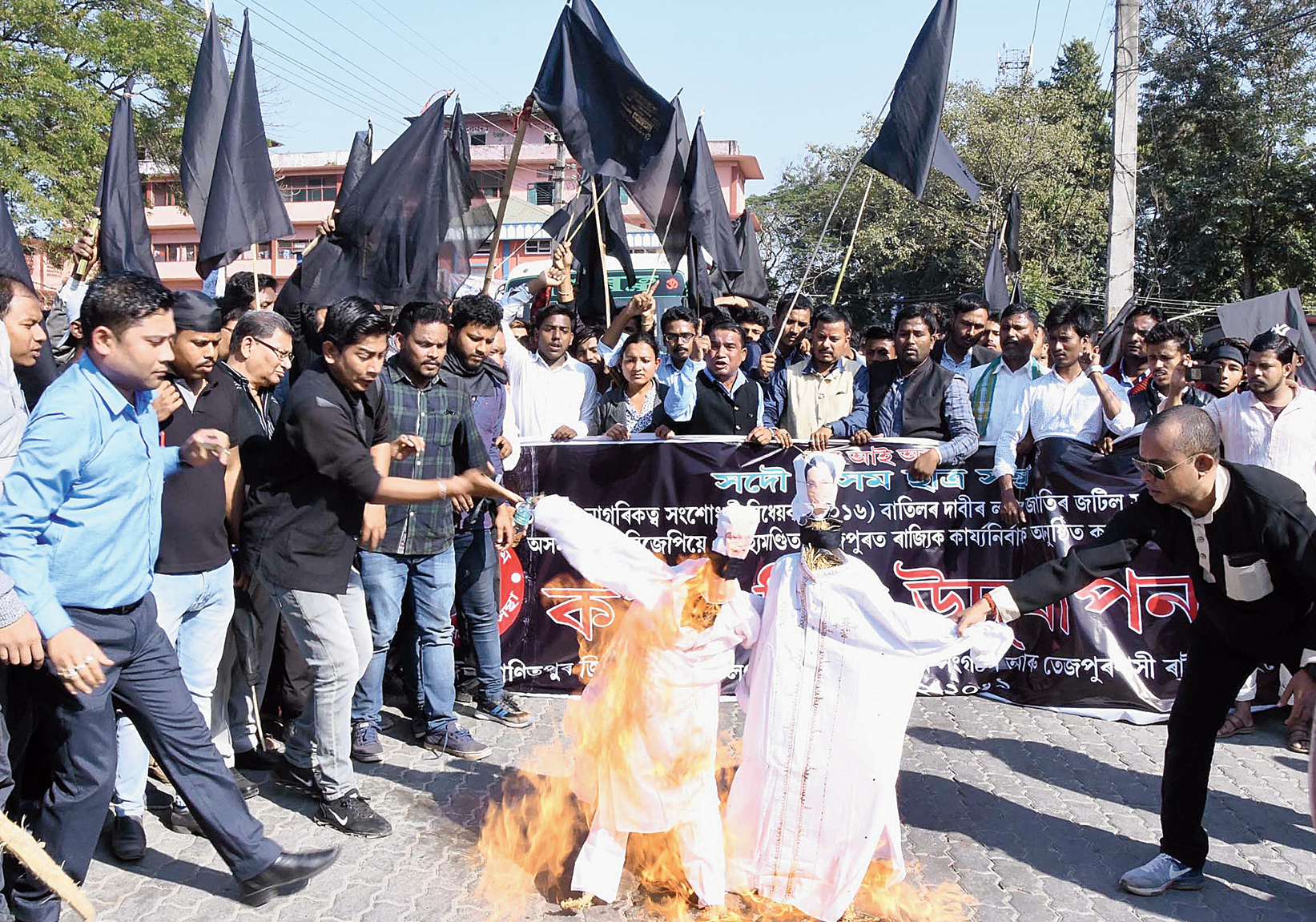The plight of Tamil refugees from Sri Lanka living in India since 1983 is set to become a part of the Congress’s narrative on the Citizenship (Amendment) Bill, 2019, after Assam CLP leader Debabrata Saikia highlighted the issue before the party top brass to “punch holes” in the Centre’s claim of trying to help persecuted minorities from neighbouring countries through the legislation.
The BJP-led central government, which got the bill passed in the Lok Sabha last month, is now trying to get it passed in the Rajya Sabha during the budget session, triggering widespread protests in the Northeast as it is seen by those opposing it as a “threat” to the culture and identity of the people of the region.
Tamil refugees, mostly Hindus and Christians, started pouring into India, mainly into Tamil Nadu, since 1983 after the outbreak of a civil war in Sri Lanka. Though the war ended in 2009, a significant number of Tamil refugees stayed back, staring at an uncertain future owing to “limited livelihood opportunities” in Lanka. Nothing also has come of the promise made by parties in Tamil Nadu of providing them dual citizenship.
The bill envisages Indian citizenship to persecuted Hindus, Sikhs, Buddhists, Jains, Parsis or Christians from Afghanistan, Bangladesh and Pakistan after six years of continuous stay.
“Had the BJP-led government’s goal truly been to aid persecuted religious minorities of neighbouring countries, then why have nearly 60,000 Tamil refugees from Sri Lanka, who are living a life of uncertainty in over 100 refugee camps in Tamil Nadu, been left out of the purview of the citizenship bill? They are mostly Hindus and Christians,” Saikia said.
He had verbally highlighted the issue before party president Rahul Gandhi on Thursday and also submitted a note to senior AICC leaders on why the bill is “bad for Assam and the Northeast” and why the Centre was pushing it.
“I have flagged the Lankan refugee issue to expose the BJP’s double standards. It is obvious the Narendra Modi government has introduced the unconstitutional, anti-Northeast bill mainly with the intention of wooing Bengali-speaking Hindu voters in Bengal before the Lok Sabha elections. Since they don’t stand a chance in Tamil Nadu, the plight of Tamil refugees has gone unnoticed though the RSS-BJP stress India is a natural home to the Hindus,” Saikia said, asserting he would raise this point at the party fora and in public interaction to build opinion against the “divisive” bill.
The Opposition Congress also said it will go all out to establish it is against the bill. The 1985 Assam Accord had fixed March 24, 1971, as the cut-off date for detection and deportation of foreigners.
“It is an undeniable fact that Assam and the Northeast need protection from a fresh assault on its demographic pattern. It is absolutely essential to fight tooth and nail to preserve the sanctity of the Assam Accord, something which our party is doing,” Saikia said.










